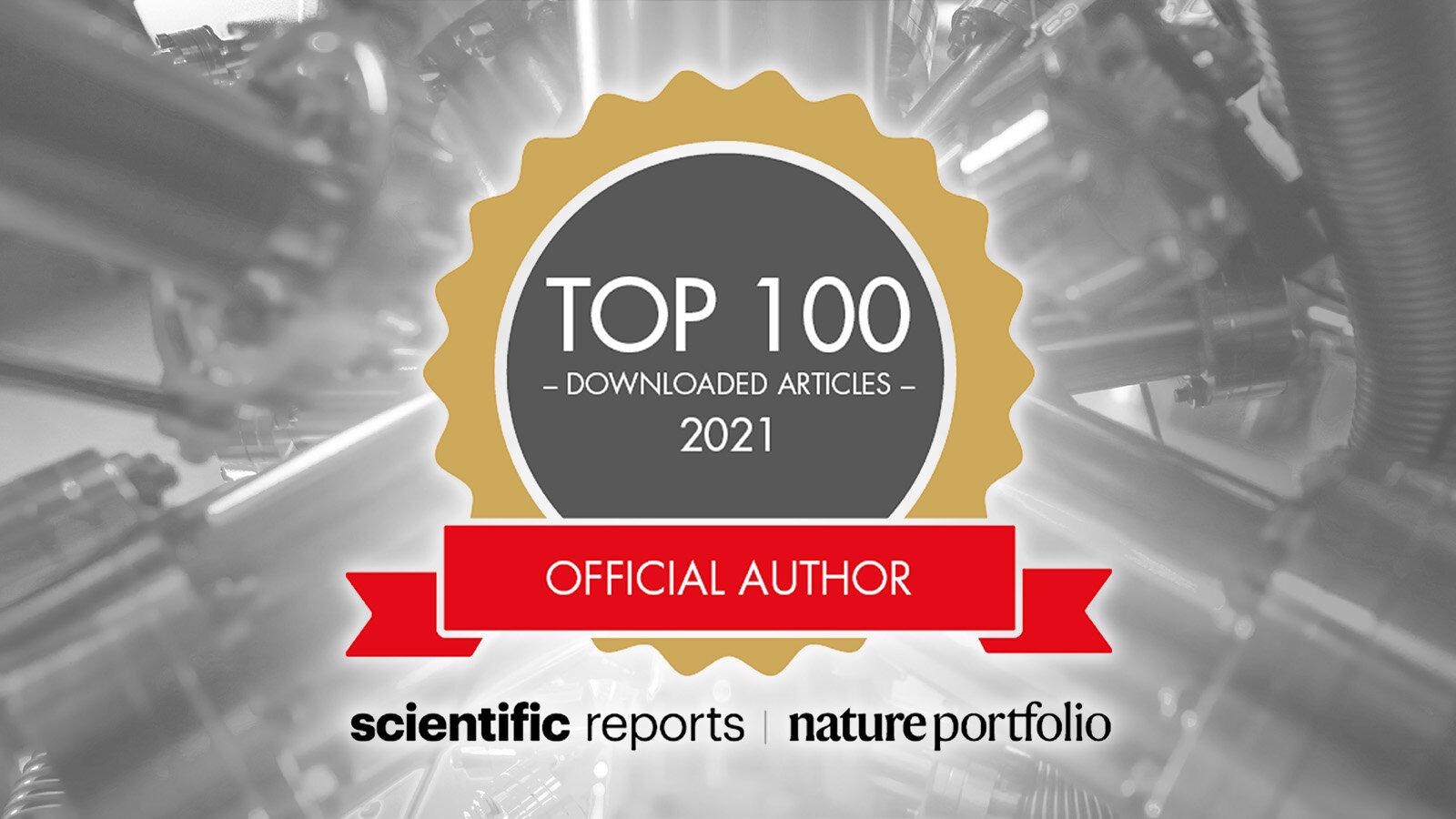Last year, an APTES monolayer covering self-assembled magnetic nanospheres for controlled drug delivery of the anticancer drug, Nintedanib, was downloaded 4,458 times, according to a joint research study from Chemnitz University of Technology and Shivaji University (India). This places the publication in the top ten most accessed papers in Nature’s peer-reviewed magazine Scientific Reports.
 The publication of Chemnitz University of Technology and Shivaji University on the effect of magnetic nanoparticles in cancer therapy was downloaded particularly often in 2021 and has now received an award for it. Image Credit: Springer Nature/Jacob Müller.
The publication of Chemnitz University of Technology and Shivaji University on the effect of magnetic nanoparticles in cancer therapy was downloaded particularly often in 2021 and has now received an award for it. Image Credit: Springer Nature/Jacob Müller.
The term “peer review” refers to the process of each manuscript being reviewed independently. The corresponding work from Chemnitz University of Technology and Shivaji University is among the top 100 chemical collections for 2021, according to Scientific Reports. In the chemical department of Scientific Reports in 2021, a total of 1,280 articles were published.
Dr. Apoorva Sharma and Prof. Dr. Georgeta Salvan from the Professorship Semiconductor Physics (Head: Prof. Dr. Dietrich R.T. Zahn), Prof. Dr. Dietrich R.T. Zahn, Dr. Ashok Chougale, and Prof. Dr. Prashant Patil from Shivaji University are among the authors of the study.
The manufacture of magnetic drug carriers for cancer treatment is discussed in this article. The researchers wanted to see if self-assembled magnetic nanoparticles may enhance Nintedanib’s anticancer properties. The researchers demonstrated that the functionalized nanoparticles had a dose-dependent effect on human lung cancer cells during in vitro cytotoxicity tests – that is, investigations on cancer cells in the lab.
The cancer cells’ cellular viability was reduced by around 75% when the nanoparticle solution was used at a concentration of 100 µg/ml (micrograms/milliliter).
This work demonstrates the successful loading of an ensemble of magnetic nanoparticles with an anticancer drug that is poorly soluble in water and thus difficult to administer.
Dr. Georgeta Salvan, Professor of Semiconductor Physics, Chemnitz University of Technology
“What is special about these magnetic nanoparticles is that the self-assembled magnetic nanoparticles retain high stability under normal physiological conditions and this inhibits the drug release. In an environment with a pH similar to a cancer cell, a controlled release of the drug then takes place,” adds Prof. Zahn.
As a result, the scientists believe that the increased magnetization of the investigated nanoparticles might be advantageous in a variety of additional nano-biotechnology applications, such as the production of magnetoresistive biosensor devices or nano-biocatalysis.
Journal Reference:
Karade, V. C., et al. (2022) APTES monolayer coverage on self-assembled magnetic nanospheres for controlled release of anticancer drug Nintedanib. Scientific Reports. doi.org/10.1038/s41598-021-84770-0.
Source: https://www.tu-chemnitz.de/index.html.en